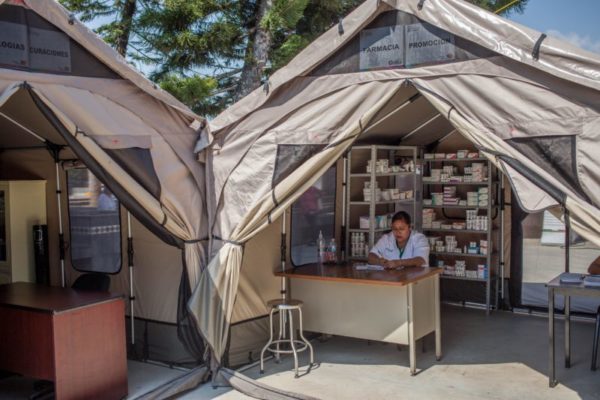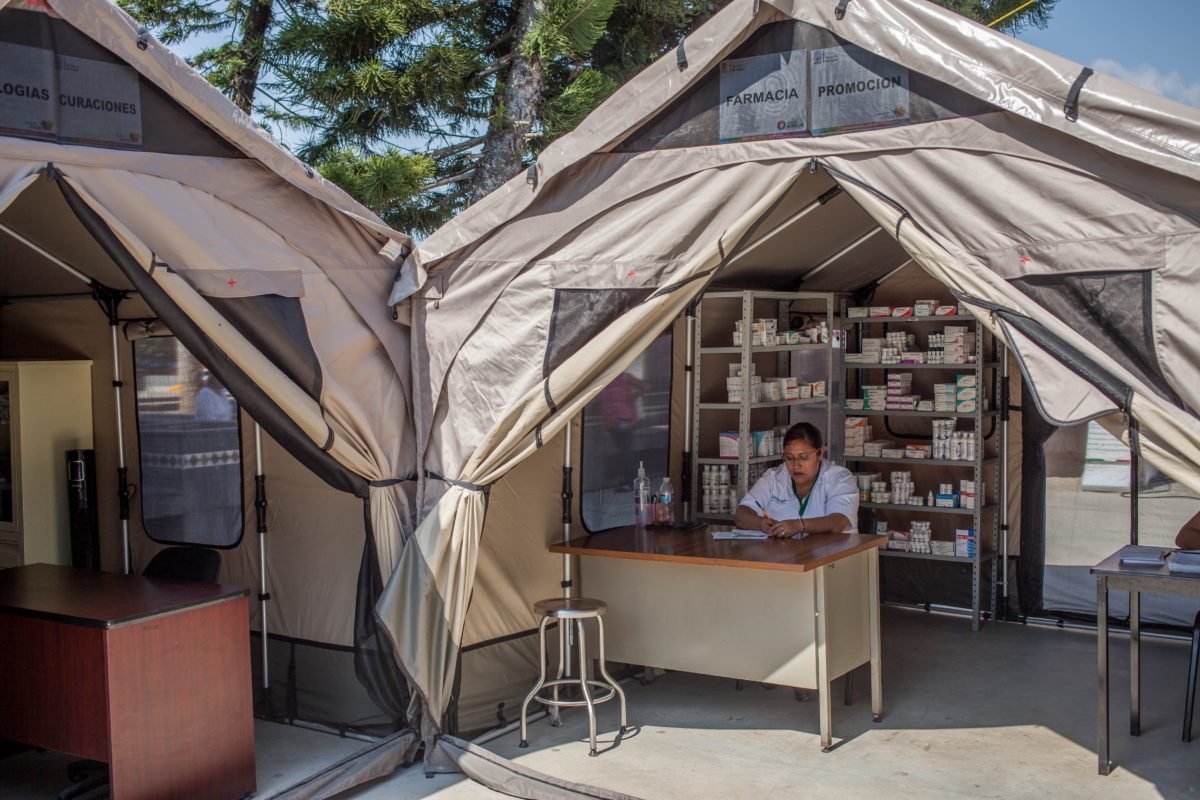Our Safe Shelter project wouldn’t be possible at the scope it is today if it wasn’t for our partner, Direct Relief. Starting in 2015, they were responsible for delivering our shelters to Nepal after the earthquake. Their mission is to improve the health and lives of people affected by poverty and emergencies. Thanks to their efforts in over 80 countries around the globe, we are able to deliver tents to people who truly need a safe shelter.
Direct Relief responds quickly and holistically to local emergencies— primarily focusing on health care needs of the affected regions. Their support of the area goes far beyond the immediate days and weeks of the emergency, however. They offer long-term support to their project partners, avoiding the ‘love ‘em and leave ‘em’ cycle that can be so damaging.
Recent projects with Direct Relief include:
Maternal Health Clinics for Refugee Women
20 Barebones shelters were sent to HOPE Hospital in Cox’s Bazar, Bangladesh, a refugee camp for Rohingya refugees from Myanmar. Over 800,000 people have arrived by foot, escaping unemotional horrors of ethnic cleansing at the hands of militants in their region. Arriving with nothing, expectant mothers and their children are an especially high risk, and the Hope Hospital provides essential services and care for these women. The shelters are part of the hospital and used as mobile clinics throughout the refugee camp. For more stories of women in the camp, this is an excellent article. Read more stories of the women in the camp and how improving maternal health is a critical need.
New Medical Center in Morales Mexico after Earthquake

Because of Direct Reliefs efforts in the area, the government of Morales requested Barebones shelters to be used as a new temporary health center in their city center, since their previous health facilities were destroyed in the earthquake in September of 2017. Direct Relief was able to participate in the ribbon cutting of the health center. Thomas Tighe, President and CEO of Direct Relief, shared with us his thoughts on the intangible benefits that these shelters provided to the people of Morales.
“As nice as the photos were, they didn’t capture what was so evident to me being there and seeing how much they meant. Beyond the obvious benefit— the community now has a place for health services to be provided— was a palpable sense of pride, hope, and forward movement. Those elements are always sort of the x-factor or special ingredient, without which things can just reset to a depressingly worse situation that only gets harder and harder to reverse as time goes on. The tents— because they are so nice, had been so carefully managed, looked so tight and orderly, and were put into immediate use— were a catalyst for that. The clinical staff and local leaders took great pride showing everyone the quality of the tents and how they’d been organized and were being used, and the response of the local citizens was similarly positive and upbeat.” – Thomas Tigh
Mobile Medical Clinics in Mexico City in 2017
Last year we sent shelters to Mexico City to be used as mobile diabetic clinics with Direct Relief. They have been set up and torn down almost once a week since last September and in these shelters, over 7495 patients have been treated in the shelter. With the health trainings that have been conducted, Direct Relief estimates that they have directly impacted 138,591 people through this program in the last year. Amazing!
Aura – A Nurse’s Story
“We can help impact the most disadvantaged communities directly with this program. Every medical campaign we organize is different, the context, even the stories we hear and encounter. Unfortunately, we find that access to health care facilities is neglected due to a lack of access to adequate transport in many of these communities. With my work and daily activities, I feel I can change the reality of the people benefitting from this program in a positive way.” – Aura




